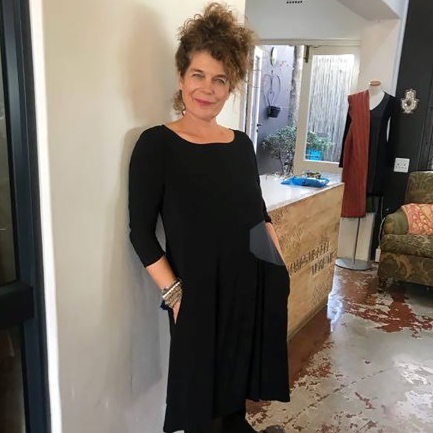SA
Using dance to bridge the divide
When the Indoni Dance, Arts & Leadership Academy won a Gold Impumelelo Social Innovations Award in November last year for its contribution to the development of South Africa, it was clear that this dance school was unique.

MOIRA SCHNEIDER
The Impumelelo Social Innovations Centre is a leading awards programme in South Africa that rewards innovators who find creative solutions to public problems.
“The academy is a bridge,” says its co-founder, Balu Searll Nivison. “We use dance as a vehicle for transformation and healing, and as a bridge to something more.”
Based in Cape Town, the academy offers a three-year post-school professional training programme for dance and integrated arts, including music, drama, and visual arts.
Indoni currently has 30 students on board for the three-year course, all school leavers from poor and marginalised communities in Gugulethu and surrounding townships.
“A lot of them are living in child-headed households, unable to afford transport or feed themselves,” says Searll Nivison. “Each student has their own mentor, who meets with them on a monthly basis. These mentors have a wide range of expertise and do a fantastic job of guiding and caring for their trainees.”
Indoni was launched in January 2015, with nation building, honouring the heritage of South Africa and rekindling hope as part of its mandate. It is drawing support from South African expatriates eager to give back to the country of their birth.
The seeds were sown when Searll Nivison, who had worked with academic and anti-apartheid activist Dr Mamphela Ramphele during the formation of her political party Agang the year before, got “very involved” in township life.
At the time, her old colleague Jenny van Papendorp suggested that she come and see the work that Sbonakaliso Ndaba, a former colleague of theirs, was doing with some dancers who had attended the Chris Hani Arts and Culture High School in the Western Cape township of Khayelitsha.
In 1986, dancers Searll Nivison, Van Papendorp and Sonwabo Masepe were behind the first black-and-white dance company in the country, Abamanyani.
Recalling her visit to the dance classes in Athlone, Searll Nivison says: “I was absolutely blown away. Sbo was funding it out of her own pocket and, when she could, was paying for the dancers’ food.”
Searll Nivison was shocked to discover that of the 100 students who graduated from the Chris Hani School, only four went on to further their studies in dance, music and/or drama, largely due to a lack of funds.
It was then that she came up with the idea of establishing a post-matric academy for students. Part of the vision of Indoni, Searll Nivison explains, was to nurture the pool of talent in a country so rich in culture like ours, that was not being celebrated sufficiently.
She kickstarted her plan of action at the end of 2014 by turning her Claremont clothing shop into a theatre to showcase works by Ndaba’s students. Ramphele was the keynote speaker. The performances sold out. In the audience was Suzanne Ackerman, who invited the group to perform at Pick n Pay’s Christmas party that year, and her mother, Wendy, donated R50 000 towards the launch of the academy.
And so, in 2015, Indoni Dance, Arts and Leadership Academy, a non-profit organisation, was born. Searll Nivison, Ndaba, Van Papendorp and Ramphele, who is chairperson of the board, were its four founders. Auditions were held and 10 students were accepted, but the academy needed funds.
It was calculated that R1 000 per month would cover food, transport and basic toiletries for each student, so Searll Nivison started the BMI (benefactor, mentor, investor) initiative, asking friends and family to sponsor one student for a year. “Everybody said ‘yes’,” she recalls. “Almost my entire family is involved!”
The group started performing “almost immediately” and have since danced locally and internationally, says Searll Nivison.
They performed at the Out of Africa festival in Perth and impressed audiences in their show in Sydney.
All that is required for admission into Indoni is commitment and passion – everyone is accepted, unless there is a valid reason for them not to be, such as persistent non-attendance.
While it costs the students nothing to attend the academy, they receive a share of the profits from large performances.
To address the leadership component of Indoni, Active Citizenship Teacher Training has been initiated for all the students. The leadership training programme encourages critical thinking by tackling subjects such as active citizenship, human rights and issues that affect the students’ lives.
“In a way, it’s starting a movement which is much greater than just a dance school. It’s a movement about dignity, personal development and bridging the divide by bringing people together who wouldn’t normally interact.”